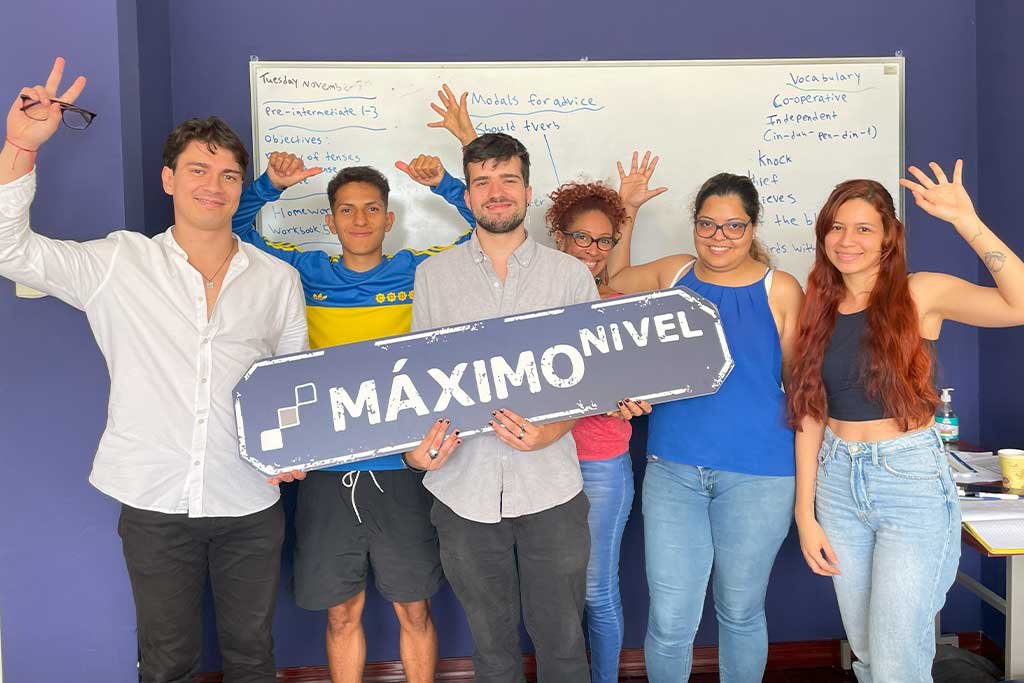Congratulations, you’ve recently obtained your TEFL certification, and you’re excited to embark on your journey as an ESL teacher. But before you dive into the classroom, there’s one crucial step to master: the ESL teacher interview. As an interviewer who’s dedicated to helping new teachers succeed in their teaching careers, I’ve put together a list of ten things you need to know and say at an interview for an ESL teaching position. We’ll also address some common pitfalls, such as vocabulary to avoid and what to say when provided with scenarios.

Understand the ESL Classroom Dynamics
ESL classrooms are different from traditional classrooms, and understanding these differences is crucial. Show your awareness of the unique dynamics of ESL classrooms and how you plan to adapt to them. For example, the importance of not explaining like you would do in a traditional classroom. Explaining something to people who don’t understand you can be counterproductive. Showing that you understand this difference is essential to prove you know that the dynamics in an ESL class are very different from your high school or university classes.
Communicative Language Teaching (CLT)
Express your familiarity with Communicative Language Teaching (CLT), a teaching approach that emphasizes real communication and interaction. Explain how you plan to incorporate these principles into your lessons. This means that you are focused on the production of English, rather than being perfectly correct, communication is the most important goal in your class.
Use Buzzwords Sparingly
While buzzwords like CCQ (Concept Checking Questions) and elicit have their place, don’t overuse them. Instead, demonstrate your understanding of these concepts by incorporating them naturally into your responses and using them on your interviewer for even better results. For example, don’t mention all the new terms you learned in your first sentence, but try to illustrate your understanding of the TEFL buzzwords.

Lesson Planning
Highlight your ability to create engaging lesson plans that cater to various language levels and learning styles. Mention the importance of objectives, materials, and how you’ll adapt when a lesson doesn’t go as planned. Having examples of some lesson plans you created during your TEFL training might give the interviewer a good insight into your style and ability.
Differentiated Instruction
Show your commitment to meeting the diverse needs of ESL learners. Discuss strategies for adapting your teaching methods to address students with varying language abilities. Some of these strategies might be to adjust your speech to make yourself more understandable to students. For higher level students you might include more colloquial slang to help them learn English as it is spoken where you are from. The most important is to show your adaptability to all different students.
Classroom Management
Explain your approach to maintaining a positive and inclusive classroom environment. Detail how you’ll handle common classroom management challenges, such as disruptive students or language barriers. Depending on where you decide to interview, you might face challenges like uninterested kids or adults who can get frustrated easily when they struggle. It’s important to consider the challenges you may face in your classes at the institute you are interviewing for.

Cultural Sensitivity
Emphasize your cultural sensitivity and awareness. Be ready to share examples of how you’ve successfully bridged cultural gaps in your teaching experience. Cultures can differ greatly and it’s important to show an interviewer that you want to understand the cultural differences and that it’s something you consider essential before starting teaching.
Problem-Solving
Acknowledge that there may be instances when you “cannot explain” a word or concept due to the student’s language level. Describe how you would handle such situations by using simpler language, gestures, or visual aids. Keep in mind that you don’t always have to have the perfect solution to a problem, but you can always take a step back and ask for help from fellow teachers or your management team. A good teacher does not always have the perfect solution in the moment, and it’s important to show an interviewer that you are willing to keep improving after you are appointed.
Incorporating Technology
Many ESL classrooms use technology to enhance learning. Mention your familiarity with using educational technology, like Zoom/Skype, interactive whiteboards, or AI tools, to engage students and show your willingness to learn and adapt to new technologies. This is very important, especially when applying to teach English online. Don’t show that you are intimidated by new technology or platforms, but instead make it clear that you are willing to learn and make mistakes.

Professional Development
Express your commitment to continuous professional development in the field of ESL teaching. Share your plans for staying updated with the latest teaching methods, materials, and resources, and show interest when discussing any personal development programs that are offered in-house. Being a team player is just as important to a teacher as it is in almost any other job.
Avoid Over-Reliance on Structure
While a teaching structure can be helpful, remember that TEFL teaching is dynamic and often unpredictable. Don’t get trapped in a rigid scenario – be flexible and adaptable. Sometimes a lesson might not work as well as you planned, or something might go wrong with your equipment. In these cases, it’s very important to keep a cool head and improvise. Make it clear to the interviewer that you are ready to freestyle if necessary.
Preparing for an ESL teacher interview can be stressful, but with the right knowledge and approach, you can increase your chances of landing your dream job. Embrace the unique nature of ESL teaching, showcase your teaching philosophy, and demonstrate your ability to adapt to the dynamic needs of ESL learners. Remember to use buzzwords like CCQ and elicit thoughtfully, and always prioritize creating an inclusive and engaging learning environment. Good luck with your ESL teaching journey!
